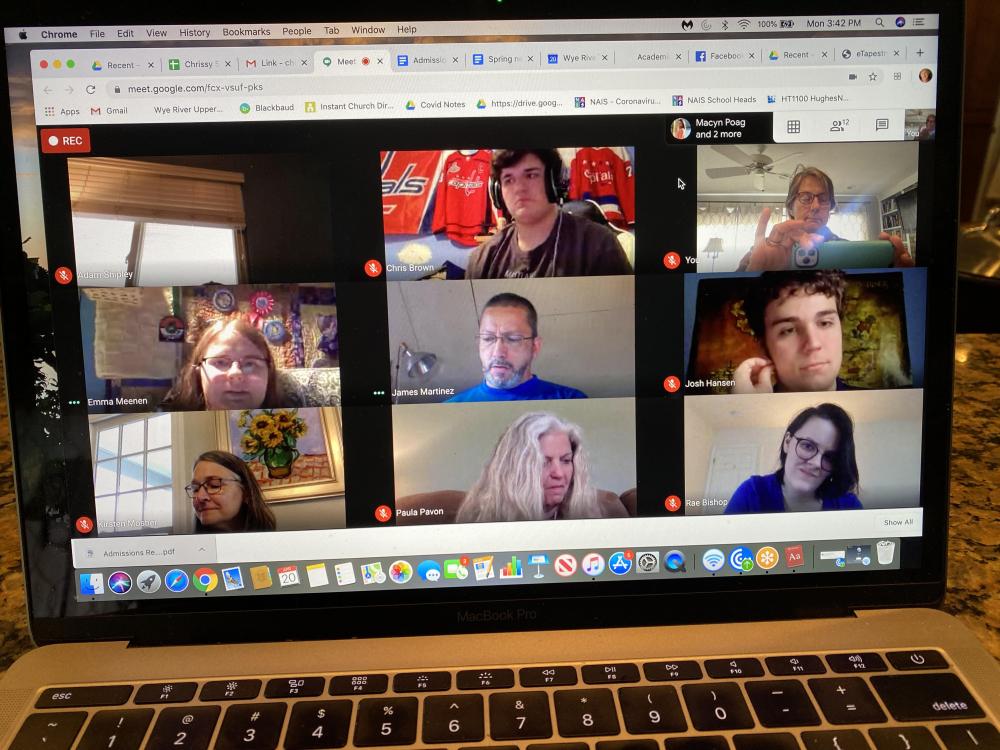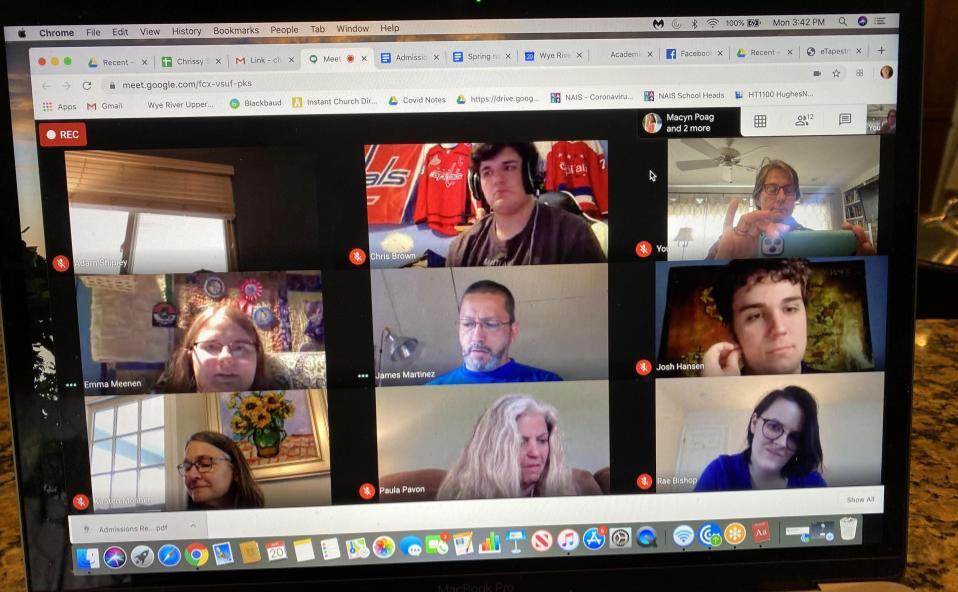Amid the COVID-19 pandemic, Wye River Upper School has opted for the modern approach to continue their program through remote learning.
On Thursday, March 12, Gov. Larry Hogan, in consultation with Dr. Karen Salmon, State Superintendent of Maryland Schools, announced that schools were to temporarily shut down.
Although the school had a half-day scheduled for Friday, March 13, students were instructed to stay home and sign in to the Blackbaud Learning Management System at 9:30 a.m. that day.
From that point on, WRUS knew they had to move quickly to pivot from physical presence to remote learning. As the weeks passed, this new form of teaching augmented the students’ agenda. Although there were some initial glitches, WRUS continued providing the required lesson plans.
Adapting to such measures fit perfectly into the tools the curriculum had already been using for a number of years.
“As I look back I realize that the design of our program had positioned us for success in this unique challenge,” said Chrissy Aull, Wye River Upper School Head of School. “We have implemented (a system where) every student has a Mac and the school had invested in a powerful central digital platform the summer before. We are tech savvy and everyone had existing expertise using these collaborative digital tools.”

Wye River Upper School students gather in their online classrooms.
Programs like Google Meet and Google Documents were essential to moving forward. Google Meet is the main platform the school has been using for their synchronous classes as it has a user-friendly interface.
Blackbaud LMS has been the main hub for everyone to use as it offers the curricular content, assignments, assessments and grades. This tool is also the main hub used for teachers, students and parents to communicate.
“As a school we had already been using both of those resources, so it made the transition to remote teaching and learning so much smoother,” said Matthew Cowan, assistant Head of School. “We are fortunate because we have managed to sustain the continuity of learning in all our core and elective academic classes. Students engage in four, 60-minute, synchronous classes per day and we have not had to miss a single class.”
While some facets of the lesson plan have stayed consistent, others have stalled or fallen by the wayside during the extended quarantine period.
“There are still areas of the curriculum that we cannot cover as robustly due to this disruption,” said Cowan. “For instance, logistically and in consideration of safety, students are unable to conduct the labs in science classes, and our theater production also had to be canceled because there’s just no way to produce such a thing remotely.”
Other programs on hold, Cowan noted, included spring physical fitness.
While such changes could discourage students from the groove of an academic year, the reception from the WRUS community has been positive.
According to Aull, she could not be “prouder of what their students are made of.”
“We know our students (are) hard working and resilient and that is a trait that students with learning differences often develop through the years,” said Aull. “I hope they and their families have a new appreciation for all that is really important in their young lives such as relationships, family, and mentors who stick with them.”
Aull continued to say that decades from now, it will not be the grades they earned that will be remembered, but the extraordinary way in which their school community made this work.
Joshua Hansen, an 18 year-old senior from Centreville said the transition was initially slightly difficult and got easier with time. As he prepares for a virtual graduation Wednesday, May 20, he regards this experience as nothing short of memorable.
“I have always appreciated my time in school, maybe now more so than ever because I won’t be able to see my fellow seniors and teachers for quite a while,” said Hansen. “WRUS has helped me overcome obstacles and made me into the person I am today. I have many accomplishments that I probably wouldn’t have in a (traditional) public school.”
Wye River Upper School is a registered 501(c)3 nonprofit whose mission is focused on students who learn differently discovering through innovation, developing with rigor, and celebrating their strengths while preparing for success in college, career, and life. Students who attend Wye River come from eleven Maryland and Delaware counties including Queen Anne’s, Anne Arundel, Howard, Prince George’s and Caroline, and accepts students on a rolling basis. For more information visit www.wyeriverupperschool.org or call 410.758.2922.
Don’t miss the latest! You can subscribe to The Talbot Spy‘s free Daily Intelligence Report here



Write a Letter to the Editor on this Article
We encourage readers to offer their point of view on this article by submitting the following form. Editing is sometimes necessary and is done at the discretion of the editorial staff.